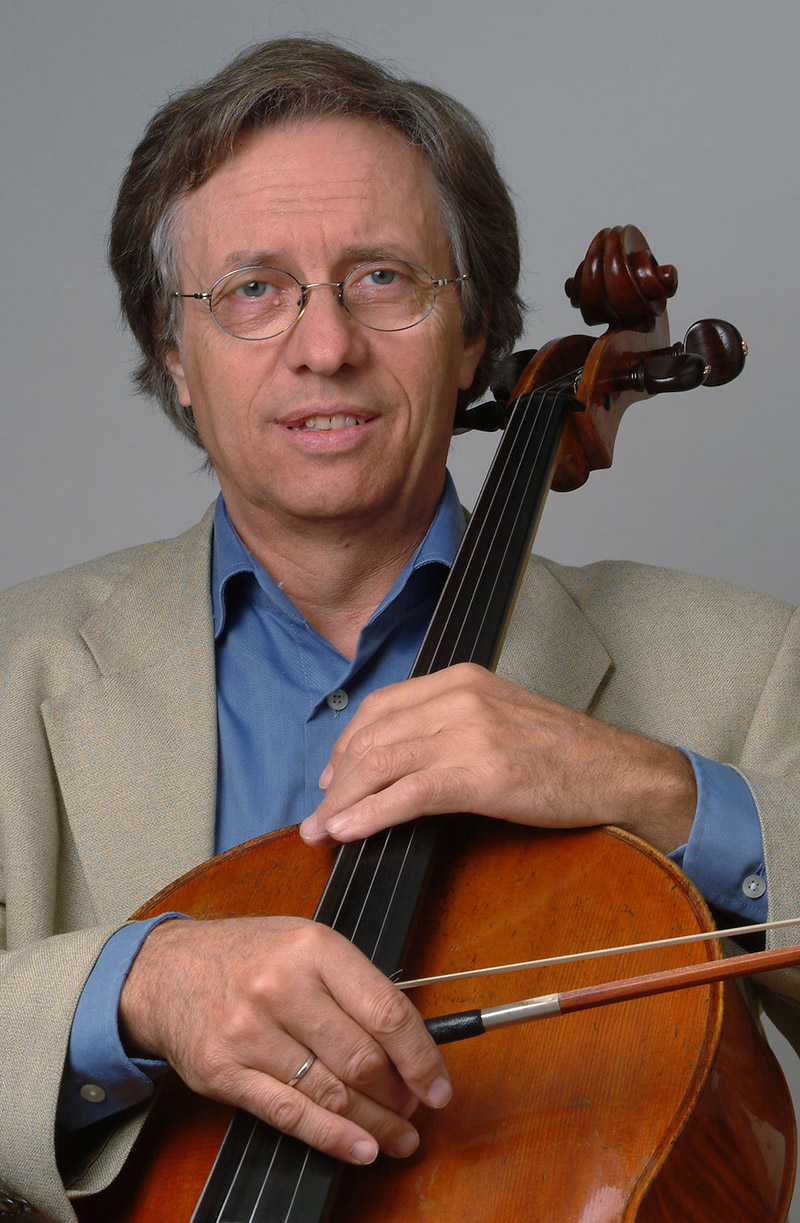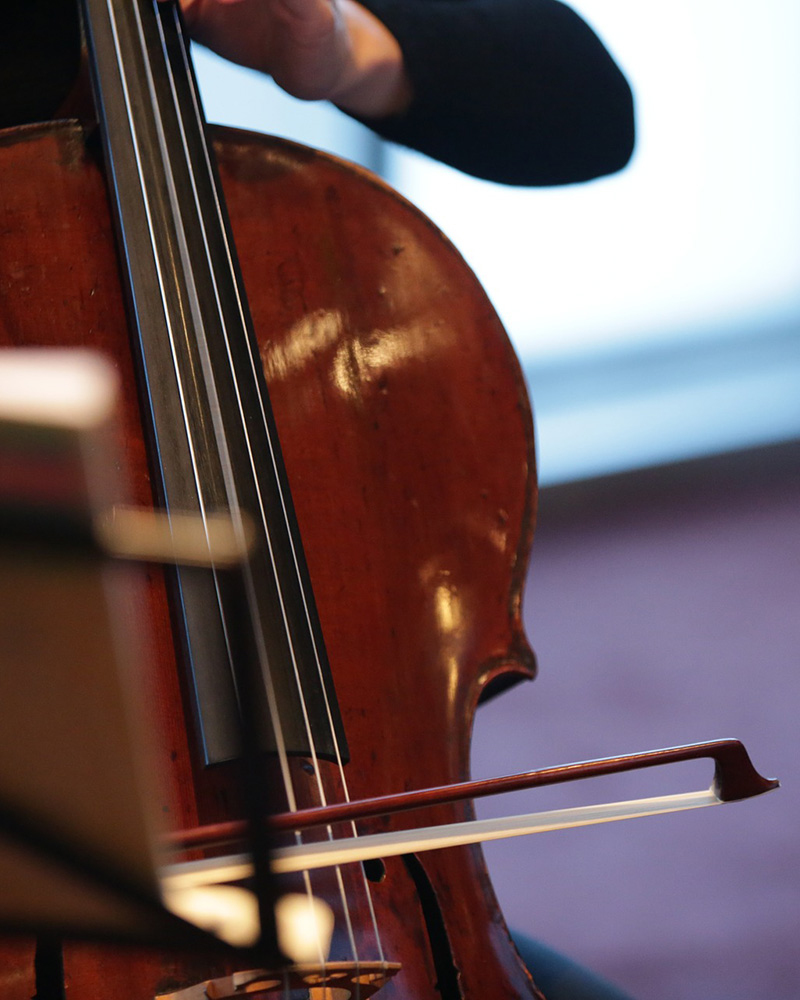Biography





Ulrich Schmid has established a distinguished career as cello soloist throughout Europe and the United States. Born in Bern, Switzerland, he was accepted at a young age into the masterclass of Paul Tortelier at the Conservatoire National Supérieur de Musique in Paris. A student of Professor André Navarra, he attained his concert diploma at the Musikhochschule in Detmold, Germany, and subsequently became his assistant before he began teaching his own cello class at the same Musikhochschule. He held the position of principal cellist with the Bielefeld Philharmonic (Germany) as well as with the orchestra of the State Theater in Darmstadt (Germany). A recipient of the renowned Diploma d’Onore in Siena (Italy), Ulrich Schmid performs on the magnificent Italian master cello built by Nicolas Gagliano in 1774. His compact disc recordings of the concerti by Bloch, Villa-Lobos, Honegger, Stamitz and Mozart (Bassoon Concerto) have enhanced his excellent reputation.
About
“I transmit the music to the audience,” is how Ulrich Schmid explains his role as a performer. He makes his cello sing, knowing that it is the singing that touches the heart of the listener. What inspires him most is the closeness to the work that he experiences as a performer. “In playing, you take part in a composer’s creative process and gain insight into a great artist’s soul,” he says. Exploring the structure of a work is particularly fascinating for Ulrich Schmid. It is not immediately evident when reading the musical text. How is a context formed? Where does a melody begin? Where does it lead? Where is its climax? Ulrich Schmid seeks clarity within a musical text in order to better convey its message to his audience. “During a performance, you finally step outside yourself and leave the technical and structural problems behind.
That’s where you feel part of the music, where you can ‘re-create’ it and make it experiential for the listeners.” Getting ahead: It is the ever-new, intensive examination of the musical text that moves the musician forward. “After years, one suddely realizes what the composer meant.” A composer’s notes, he says, are a code; in fact, they contain everything – you just have to be able to decipher them. Teaching: As a performer, Ulrich Schmid passes on insights to the audience; as a teacher, he passes them on to young cellists. He entrusts his own experiences and convictions to the next generation. In this way he becomes part of a tradition of artists who pass on music across space and time.
Repertoire
Repertoire Cello Concerts
- Carl Philipp Emanuel Bach
Concerto Nr. 3 in A-major - Ludwig van Beethoven
Triple Concerto in C-major Op. 56 - Ernest Bloch
Schelomo - Luigi Boccherini
Concert in B-flat major (Grützmacher) - Johannes Brahms
Double Concerto in A-minor Op. 102 - Aram Chatschaturjan
Concert - Antonín Dvořák
Concert in A-minor Op. 104 - Edward Elgar
Concert in G-major Op. 85 - Friedrich Gulda
Concerto with Winds - Joseph Haydn
Concerto in D-major Op. 101
Hoboken VII b:2 - Arthur Honegger
Concert - Eduard Lalo
Concerto in D-minor - Frank Martin
Concerto - Darius Milhaud
Concert - Wolfgang Amadeus Mozart
Bassoon Concerto (arr. for cello) - Sergeij Prokofiew
Symphonic Concerto Op. 125 - Camille Saint-Saëns
Concerto in A-minor Op.33 - Robert Schumann
Concerto in A-minor Op. 129 - Carl Stamitz
Concerto Nr.1 G-major - Richard Strauss
Don Quixote Op. 35 - Peter Iljitsch Tschaikowsky
Rococo-Variations Op. 33 - Heitor Villa-Lobos
Fantasia
Concerto Nr. 2
Grand Concerto - William Wallace
Double Concerto for Cello and Piano
Solo Repertoire
- Johann Sebastian Bach
6 Suites BWV 1007-1012 - Ernest Bloch
Suite Nr. 3 - Benjamin Britten
Suite Op. 72 - Aram Chatschaturjan
Sonata - Domenico Gabrielli
7 Ricercari - Hans Werner Henze
Serenade - Paul Hindemith
Sonata Op. 25 Nr. 3 - Zoltán Kodály
Sonata Op. 8 Capricco - Max Reger
3 Suites